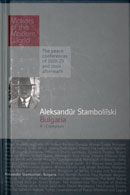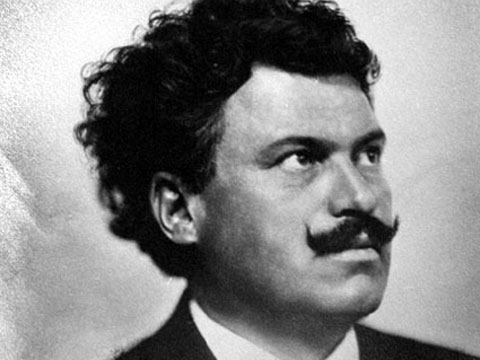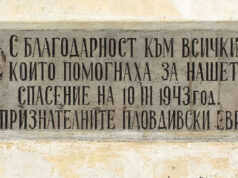 In his latest addition to Bulgarian historical scholarship, R.J. Crampton offers an adept short treatment of Alexander Stamboliiski and the impact of Agrarianism in Bulgaria during the 20th century. As his readers have come to expect, Crampton once again gives us well crafted insight wrapped in appropriate historical context. The result is a useful and enlightening discussion that both describes the life and accomplishments of this influential Bulgarian leader and informs our understanding of his place in Bulgarian history.
In his latest addition to Bulgarian historical scholarship, R.J. Crampton offers an adept short treatment of Alexander Stamboliiski and the impact of Agrarianism in Bulgaria during the 20th century. As his readers have come to expect, Crampton once again gives us well crafted insight wrapped in appropriate historical context. The result is a useful and enlightening discussion that both describes the life and accomplishments of this influential Bulgarian leader and informs our understanding of his place in Bulgarian history.
The book is divided into three distinct parts. The first provides background concerning the emergence of modern Bulgaria, the rise of Stamboliiski, and the events of the years 1912-18 which are critical to our understanding of Agrarian influence in Bulgarian politics. The second is a detailed discussion of the post-WWI situation, the Treaty of Neuilly, and the impact of the Treaty on the Bulgarian state and people. The third describes the fall of Stamboliiski, subsequent political developments in Bulgaria, the struggle of the Agrarian movement and its eventual elimination by the Communists after the end of World War II, and the legacy of Agrarianism at the end of the 20th century.
 Crampton reveals Stamboliiski as a populist leader of considerable political skill. He was a man of principle intent on doing good for his nation — at times remarkably prescient, often pragmatic, and sometimes naively optimistic about people and events. Crampton quotes from A.L. Kennedy’s first hand observation:
Crampton reveals Stamboliiski as a populist leader of considerable political skill. He was a man of principle intent on doing good for his nation — at times remarkably prescient, often pragmatic, and sometimes naively optimistic about people and events. Crampton quotes from A.L. Kennedy’s first hand observation:
“Stamboliiski was the essence of his race. He had all the qualities of a Bulgarian, and not quite all his faults. Huge in stature, broad in proportion, big-shouldered, uncouth in his movements and vehement in speech, he impressed everyone with his energy, his sincerity, and his fearlessness. His big brown face was topped with a shock of black hair, and his upturned moustaches helped to give his appearance a certain fierceness. There was a combative twinkle in his eyes, a deep furrow in the forehead between them, and a nose not without fineness. His frankness was refreshing in a country where it is the rarest of qualities. Not that he was wholly devoid of a peasant’s cunning; or free from the thriftiness of his class and the avidity of his race.”
Substituting today’s de rigueur shaved head and stubble for Stamboliiski’s then stylish moustache and full head of black hair, there are remarkable similarities between the populist Agrarian leader and Boyko Borisov, a contemporary populist darling.
Stamboliiski was deposed by a rightest coup in 1923, captured, and subsequently murdered by his political opponents. His regime enjoyed only four years in power, yet he is remembered as the only European agrarian politician to achieve majority rule. Many of their legislative accomplishments, including land redistribution, the Compulsory Labor Service, and important social legislation such as the eight hour work day and the progressive income tax had long lasting impact in Bulgarian society.
Crampton’s detailed description of the post-WWII period and the systematic extermination of Agrarian political power at the hands of the Bulgarian Communist Party are both informative and a warning about the fragility of even the best intended political movements.
The book includes a detailed chronology of Bulgaria from 1878 to 1947, a guide to further reading, and an index. Welcome to Bulgaria maintains a reference copy of this work in our library for use by our Miracle Max members.
Aleksandŭr Stamboliĭski: Bulgaria
(Makers of the Modern World Series)
Haus Publishing
2009
ISBN-13: 978-1-905791-77-4 (hardback)
Table of Contents
Preface
Transliteration Scheme and Abbreviations
The Life and the Land
The Paris Peace Conference
The Legacy
The Emergence of Modern Bulgaria
Bulgarian Society and the Birth of the BANU
The Rise of Aleksandŭr Stamboliĭski
The Years of War (1912-18)
Bulgaria’s Exit From the War
The Treaty of Neuilly
Stamboliĭski and the Restrictions of the Treaty of Neuilly
Reparations and Foreign Policy
The Fall of Stamboliĭski
From Coup to Coup (1923-34)
Through Authoritarianism towards Totalitarianism (1934-44)
Stamboliĭski’s Legacy
Notes
Chronology
Further Reading
Picture Sources
Index
Bibliographic Entry:
Crampton, R.J. Aleksandŭr Stamboliĭski: Bulgaria. Makers of the Modern World Series. (London: Haus Publishing), 2009.












